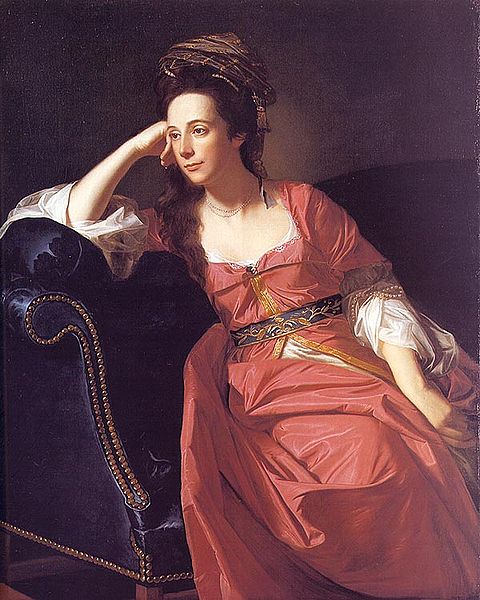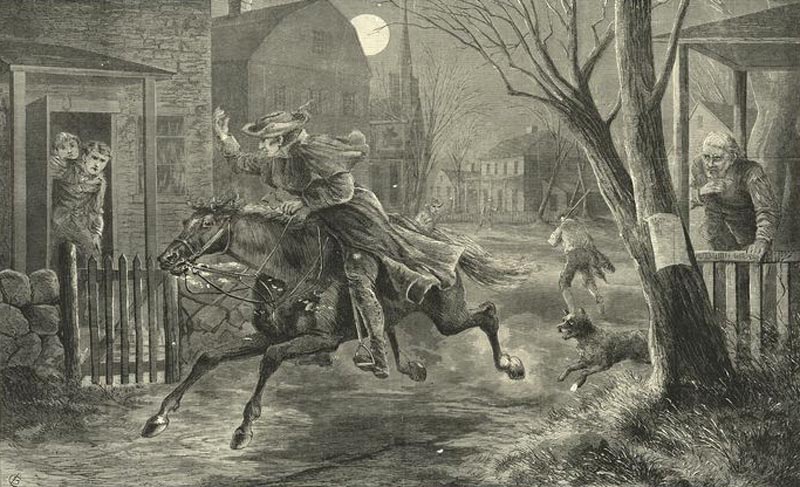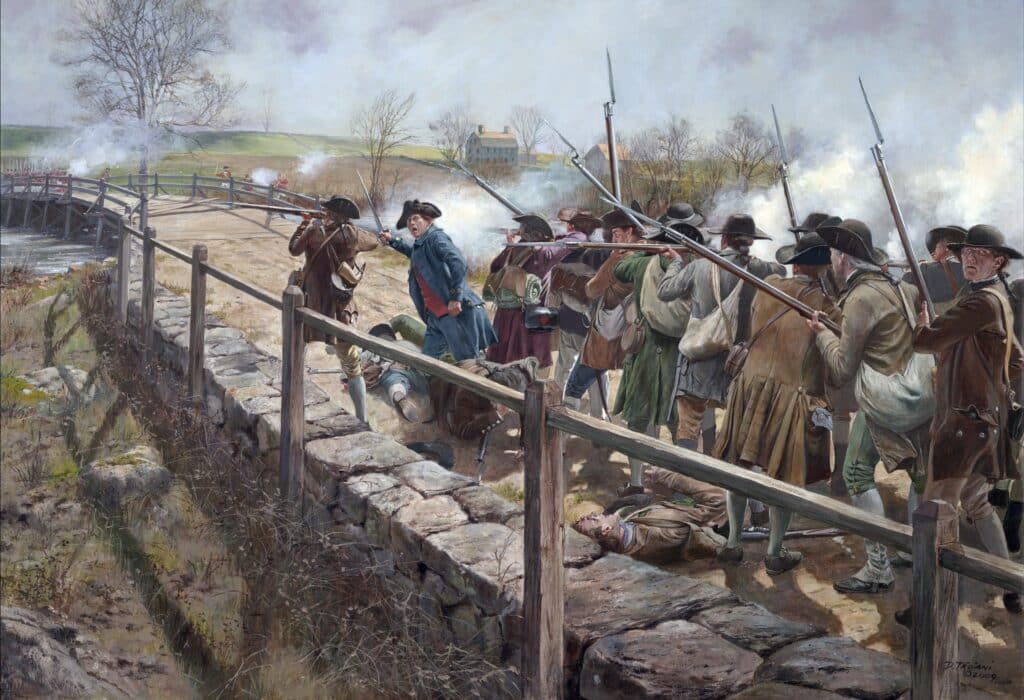The British were met with disaster at the Battles of Lexington and Concord.
What started as a secret plan to surprise the colonists at Concord ended up in a catastrophe. The British were pushed back into Boston and then trapped and put under siege. The battle raised morale and brought the colonies closer to war.
What happened, and why did the most powerful nation on the earth get beaten so handily?
Jump to:
Here are my five reasons:
1. The Colonists Learned of their Plans
The patriots of Massachusetts were anything but ignorant of what the British were up to.
Led by their charismatic leader, Joseph Warren, the men of Massachusetts put into place a sophisticated alarm system and a spy network that would spread information quickly and allow the local militias to muster at a moment's notice.
While it is debated how Joseph Warren learned of General Thomas Gage's plans (many believe it was through Gage's wife Margaret Kemble Gage), he did learn of them and he activated Paul Revere and William Dawes to ride through the countryside and alarm Samuel Adams and John Hancock the night of the march.

2. Paul Revere's Ride
It is unfortunate that most schoolchildren only understand the significance of Paul Revere's Ride because of a poem that was written many years after the ride took place.
Paul Revere was well-connected, and during his ride, he triggered many other riders who also went on to trigger the Middlesex countryside. Contrast this to the ride of William Dawes, who only carried the message he was told to carry to Lexington, and one can see the significance.
Without Paul Revere's knowledge and connections, it is unlikely the Americans would have been able to get ahead of the British march to Concord.

3. Samuel Prescott's Ride
Paul Revere gets most of the credit, while Samuel Prescott is often forgotten.
After Paul Revere and William Dawes spoke to Samuel Adams and John Hancock, the two midnight riders recruited another rider by the name of Samuel Prescott.
Shortly after his recruitment, the three ran into a British sentry, which resulted in Paul Revere being captured, William Dawes retreating home, and Samuel Prescott, the lone messenger to spread the word.
It would be Prescott's actions during the midnight ride that alarmed Concord and triggered others in the countryside, including his brother Abel Prescott.
4. The Colonists Fought Differently
Fighting an enemy is tough, but fighting an enemy in their own city is extremely difficult.
After the British lost the Battle of Concord and began to march back towards Boston, they came under heavy fire from every possible angle. The colonists knew where to hide and where the British would be most vulnerable. There were multiple twists and turns where the British took heavy losses.
It speaks highly of British discipline that they were able to survive that retreat and not completely fall apart.
While the British knew how to fight many of the Native Americans due to the French and Indian War, they were not ready and were grossly outnumbered by the colonists, waging a similar style of guerilla warfare.

5. The British were Outnumbered
General Thomas Gage knew this, and that is one of the reasons the plan was kept secret.
Months prior to Lexington and Concord, the British accidentally triggered the alarm system the colonists had in place. This became known as the Powder Alarm, which worried Gage.
He knew that if the colonists were well-organized, they would be difficult to defeat if Great Britain ordered him to attack. They did, and he was right.
After the Battle of Lexington, militia from all over Middlesex County began to pour into Concord during the British retreat. With each passing hour, the British were facing a well-organized and well-armed group of militia who often had fresh legs.
